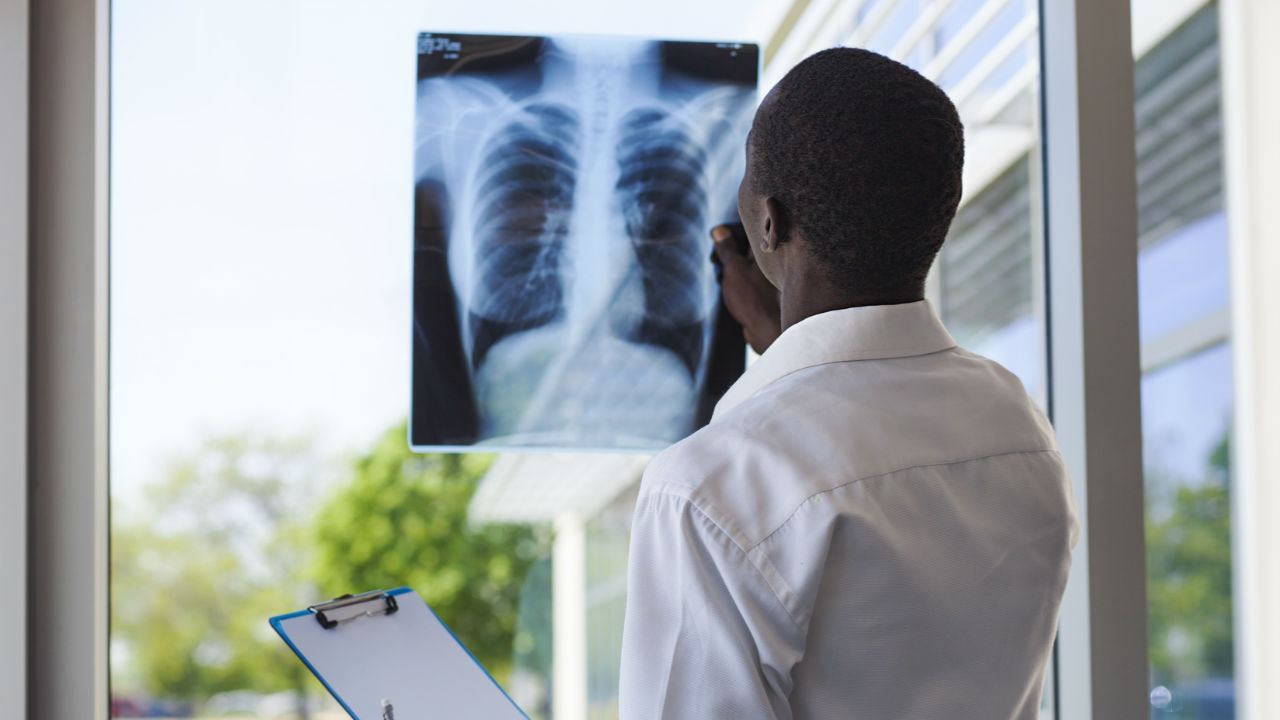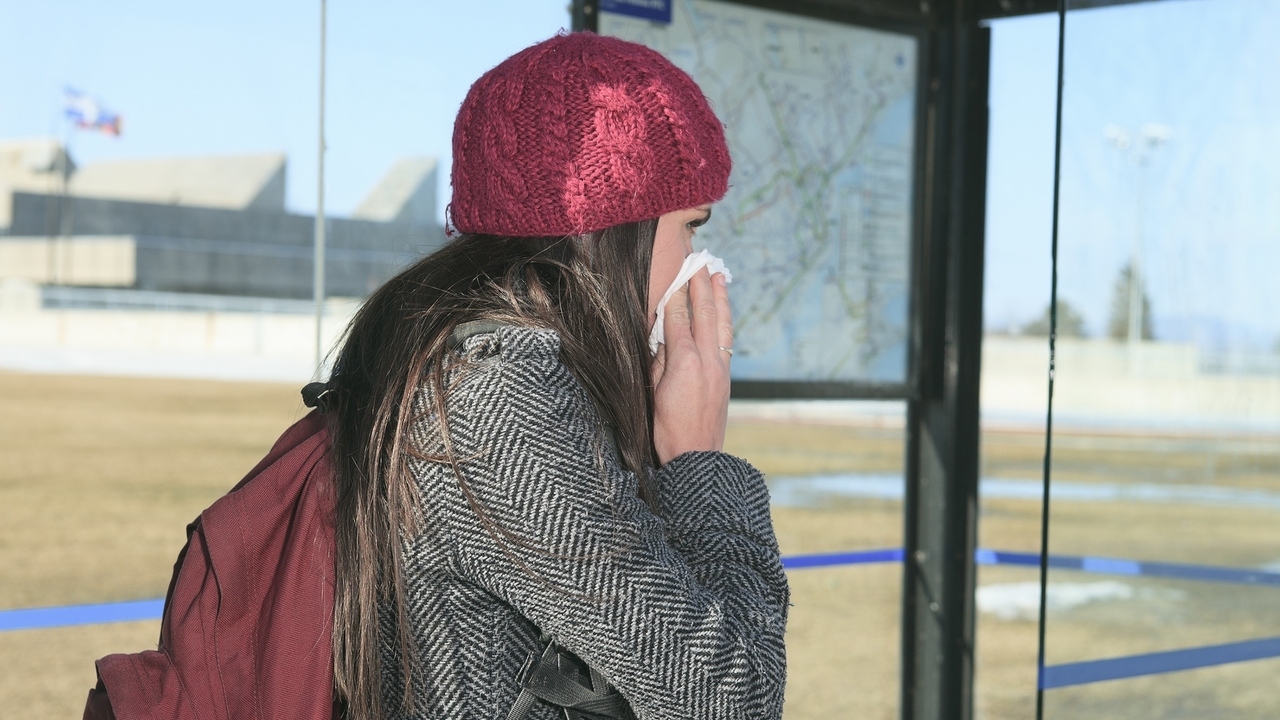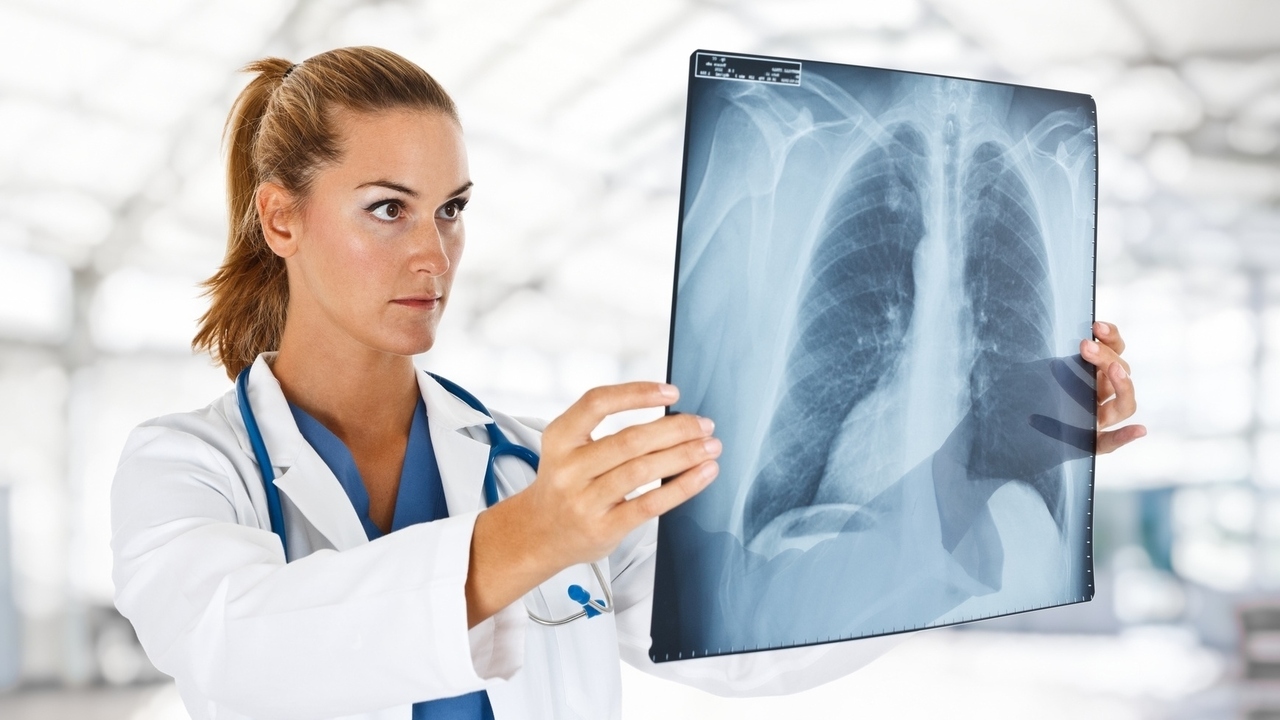 Olesya Shelomova/fotolia
Olesya Shelomova/fotolia
What is Hamman-Rich Syndrome
Hamman-Rich Syndrome is also known as acute interstitial pneumonia. It is an uncommon type of pneumonia for which researchers have not yet found a cause (idiopathic). It affects otherwise healthy individuals. The underlying condition may worsen without symptoms appearing for a long period of time, but when the symptoms do manifest they come on very suddenly and "acutely".
The condition received its name from the doctors who discovered the disease in 1939, Drs. Hamman and Rich.
Acute interstitial pneumonia has similar symptoms to acute respiratory distress syndrome, and may be misdiagnosed as such.
Pneumonia results when tissues of the lungs become inflamed in reaction to infection. Interstitial pneumonia, by comparison, is a long-term condition that affects the connective tissue of the lungs. The inflammation is caused by the build up of white blood cells and plasma in the alveoli (the tiny sac that facilitate the carbon dioxide/oxygen exchange in the bloodstream). With interstitial pneumonia, the inflammation also extends into the bronchioles - small airways that branch off into the lungs.
If the inflammation lasts long enough, the fluid hardens into scar tissue (fibrosis). If there is enough scar tissue, over time alveoli will be destroyed and the space filled with cysts. Over time, the bronchi and the walls of the bronchi widen, or are destroyed resulting in the lungs shrinking.
Sixty percent of those with acute interstitial pneumonia die within six months of the appearance of symptoms.
Symptoms of Hamman-Rich Syndrome
As stated earlier, symptoms of Hamman-Rich Syndrome or acute interstitial pneumonia are similar to those observed in acute respiratory distress syndrome, which are:
- shortness of breath
- rapid, shallow breathing
- crackling or wheezing sounds in the lungs
- cyanosis (blue tinge) to the skin
- heart and brain function issues (rapid heart rate, difficulty concentrating, forgetfulness) because of long-term reduced oxygen supply
Diagnosis and Treatment of Acute Interstitial Pneumonia
Diagnosis of acute interstitial pneumonia is usually confirmed through CT scans, lung biopsy, and tests that measure pulmonary function.
The goal of treatment is to prevent complete respiratory failure and keep the patient alive and comfortable until the condition resolves. Treatment often involves use of a ventilator in the event of respiratory failure, and administration of corticosteroids (although it is not known how effective these medications are).
For those who survive, lung function will improve over time, but the condition may return.
Sources: www.uptodate.com; www.wrongdiagnosis.com; www.medfriendly.com; www.merck.com






Add a Comment72 Comments
I was 52 years old when I woke up and was having a really, really hard time breathing. I went to Urgent Care, who immediately sent me to the ER-thinking I was having a pulmonary embolism. I was in the hospital or 10 days. They did PFTs and CT scans, respiratory treatments and PT to increase my physical activity. I was completely exhausted from just trying to breath, it was all I could do to get up to go to the bathroom. They had all sorts of specialists come in--pulmonologists, infectious disease doctors, etc. They never mentioned Hamman Rich Syndrome at all. They never talked about expected outcomes, death rates, etc. They were talking about a vent at one time and believe me-I would have welcomed it because it was so hard to breath!!! Anyway, after 10 days hey released me to go home. I first saw this diagnosis on my health record last week. I do not know about what may have contributed to this, but I do have a hx of sarcoidosis, alopecia, Sjrodens syndrome, and almost yearly pneumonia/bronchitis. What is the research saying about reoccurrence rates???
January 5, 2020 - 11:17pmThis Comment
My experience began with periodic fever spikes up to 103-104 F in mid-2014. We went to ER and they could not find anything significant with blood tests and urine tests except high white cell count. There were three episodes over a period of 6 weeks that were treated by my family doctor with antibiotics. The same symptoms continued - fever would spike for 8-24 hours and then subside.
December 3, 2015 - 6:50amI spent four days in the hospital while they ran multiple tests on ball bladder, kidneys, systemic infections, CT scans, radioactive traces, etc. Nothing conclusive was found except that I might have a bad gall bladder. I rejected the surgery on my gall bladder and went home. Two weeks later the fever returned and I began to have shortness of breath. My new doctor sent me for a CT scan of the lungs just before Labor Day weekend and subsequently sent me directly to the hospital for admission since the lungs looked like they were full of broken glass. Breathing deteriorated over the next three days and became critical with constant delirium and fighting to breathe even with masks. Oxygen levels went as low as 75 at times. More CT scans and open lung biopsy were inconclusive as to cause. Treatment with prednisone and morphine saved my life. After two weeks in ICU, my condition improved dramatically and prednisone dosage was reduced over the next four months. One year later my ling CT scan was clear, I am back on the tennis court, and jogging on the treadmill.
My biggest fear - it could happen again since after all the testing there was no cause defined for what my doctors and family described as a life threatening event. Were the fever spikes a sign of the problem? Were the antibiotics for the fever appropriate? What might have happened if I had elected to go through with the gall bladder removal?
This Comment
A family member was recently diagnosed with this disease. Where did you receive your treatment? Researching the best place to get him ASAP.
May 19, 2016 - 7:55amThis Comment
I think your uncle is my very close friend I have not been down to see him yet do to a cold that I have but ikeep in touch w the family every day. If this is the same guy we both know how string this man is and I have very strong faith in his recovery.
June 29, 2013 - 9:35amThis Comment
The main problem with Hammen-syndrome is that we do not know what causes it. It seems to always attack people that are otherwise healthy. I had this disease in 2011. As far as I know, the treatment is to induce a coma and put you on steroids. It is up to the person after that.
June 28, 2013 - 6:12amThis Comment
My uncle has been diagnosed with Hamman-Rich today 7/25/13. He had been complaining of joint pain for months and at first he was told he had Lyme disease but the blood test did not support that. He was admitted to the hospital over a week ago because he couldn't breathe- lungs were filled with fluid when they did an ultrasound and he couldn't maintain O2 so was put on oxygen for that. They induced a coma Tuesday night for a lung biopsy which we got the results today. He's on ventilator now and they also paralyzed him- something to do with muscles twitching? I don't have all the details I am in NC and my mom is there with him in upstate NY.. He is 40yrs old and a contractor so they had been telling us before HR diagnosis that they suspected it was an environmental cause but we were not expecting this condition.. They have already been trying corticosteroids, the only other treatment option I could find through research is lung transplant, there is not much information out there
June 27, 2013 - 5:54pmThis Comment
Date should be 6/25 not 7/25. Is there any research on any natural sources that can aid in the lungs clearing out the fluid so the condition can get better? Maybe any supplemental herbs or homeopathic treatments that could assist.. I know there is not much known on interactions of herbs with certain medications but sometimes Complimentary and Alternative medicines combined with conventional treatments can be beneficial for conditions with no cure.
June 27, 2013 - 6:01pmThis Comment
I haven't researched that side of things. There's very little known about the disease in the first place and doctors treat it in the only way they know how to treat lung issues. Might be worth looking at what asthmatics use (such as alfalfa root), but there isn't anything definite about what works and what doesn't in these kinds of cases.
July 3, 2013 - 5:19pmThis Comment
I was diagnosed with Acute Interstitial Pneumonitis 3 weeks ago after I was admitted to the ICU through the ER. I ended up there for 8 days. I was suffering from a 4 month long cough along with progressively worse breathing. By the time I got to the ER I was really struggling to get a good breath. 3 days later they did a Bronch and took a small biopsy of my lung which showed up no Fungus or Bacteria but the above mentioned disease. I am only 34 years old and they have no clue where I got it from. I am an otherwise healthy woman. I am now at home and have some difficulties, but they were really aggressive with medication in the hospital and they are doing the same since I have come home. I go to the pulmonologist every 6 weeks and just had a PFT and a 6MWT yesterday to see how I am responding to the medications. (steroids and Cortosteriods) I have two young children who need their mom and I am super scared of what could possibly happen in the next few months/years. I have had no luck finding anyone my age with the disease to see what treatments they have done and how they have progressed. I'm hoping that this website can help link me to someone who can help or be of support.
May 23, 2013 - 7:14amThis Comment
My dad was diagnosed with Hammond-Rich Syndrome in 1970 and given 6 months, 2 years max. His doctor put him on duirel and prednisone. He continued on those meds for about 20 years. The prednisone enlarged his heart and he died of a heart attack in 1998. Although meds can help please be careful of the long term side effects. From 1990 until his death my dad had many bouts of pneumonia, 2 to 3 times a year. He lived a full life, enjoyed his grandchildren and worked for 20 years with the disease. Do not feel this is a death sentence or your life is over.
December 24, 2014 - 6:14pmThis Comment